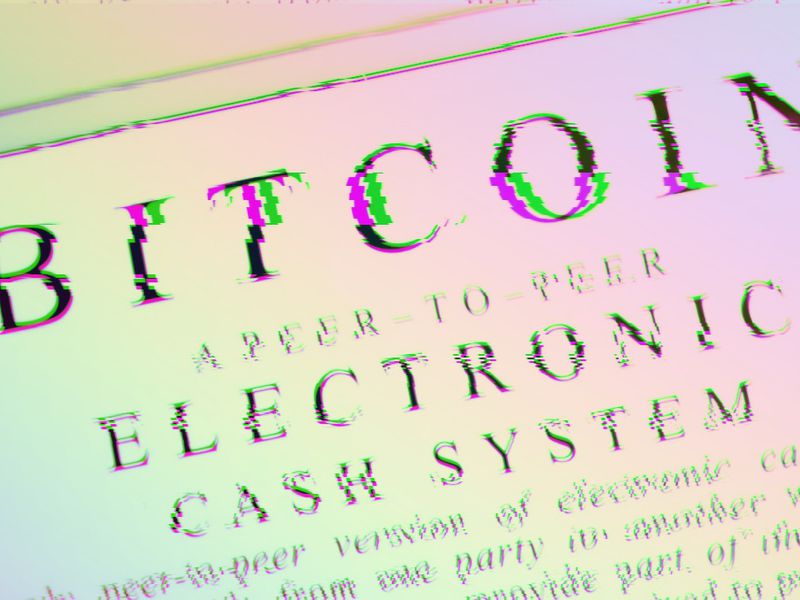How We Can Make the Agentic Internet Work for Everyone
The internet is on the brink of a profound shift. The vision of AI agents — intelligent digital assistants acting autonomously on behalf of individuals and organizations — is becoming a reality. This “Agentic Internet” will soon be populated by trillions of AI agents making decisions, executing tasks, and engaging in commerce without direct human supervision. However, this transformation brings significant challenges that we must address to ensure a secure, fair, and trustworthy digital ecosystem.
As personal AI agents take on complex roles, understanding and authenticating their identity becomes crucial. The concept of being personal implies that an agent may represent its creator to make significant decisions, from financial transactions to negotiations. A critical issue arises: how do we ensure that an agent truly represents its human creator?

02:38
‘High Likelihood’ Cardano Founder Charles Hoskinson Will Become Trump’s Crypto Advisor

01:42
Bitcoin Hits New $76K Record High, ETFs Post $620M Inflows

02:41
Bitcoin’s New All-Time High; U.S. BTC Reserve Hopes Fly

16:22
Bitcoin to Reach $100K by December or January: 10x Research Founder
This problem extends to the data used in the agent’s development. If an AI agent leverages datasets or models not originating from or approved by its creator, the alignment between the agent and its creator may be compromised. This mismatch can create an identity crisis, undermining trust in these digital interactions.
Allowing an AI agent to have its own wallet or the rights to manage a user’s wallet is crucial for realizing the vision of fully autonomous AI agents. This capability can help bridge the digital divide, as agents are often better equipped than most human users to handle digital assets and complex smart contracts. Ensuring the security of these agents is paramount: how can we trust an AI agent to manage valuable digital assets?
The decentralized nature of digital assets demands heightened security measures. An even greater challenge arises as humans may have to navigate different digital interfaces used by AI agents, potentially increasing the risk of phishing and man-in-the-middle attacks. How can we ensure payments are made to the correct recipient? More intuitive identification and authentication methods based on human interactions are needed to minimize the digital divide. Yet, there is always a trade-off between security and usability.
Democratization of the Agentic Internet
Another pressing challenge is the potential for AI to deepen existing socioeconomic inequalities. Wealthier individuals and corporations are better positioned to invest in more sophisticated AI agents, capable of executing high-impact strategies and dominating digital markets. These advanced agents could widen the resource and opportunity gap, effectively amplifying the influence of the already privileged.
In contrast, individuals or communities with limited resources may find themselves further marginalized, lacking the advanced digital capabilities necessary to compete. In our vision of the agentic internet, users gain greater autonomy and control over their digital presence, guided by AI agents. We empower communities to thrive in a more decentralized, user-centric online environment. Users could transform their social capital and/or reputation capital into an economic capital in the agentic internet.
Also worth mentioning: as AI agents are extensions or manifestations of their creators in the digital realm, it becomes essential to contemplate their digital responsibilities, digital rights and autonomy.
Finding the Path for the Agentic Internet
On October 31, Bangdao Chen, Co-Founder of the Oxford Blockchain Research Centre, and Ramesh Ramadoss, Chair of the IEEE Blockchain Technical Community hosted an event titled “Smart Agents on an Enriched Blockchain” at Keble College, Oxford. It highlighted the challenges and design solutions in the agentic internet: building independent and verifiable agents. Renowned computer scientists, including Richard Sutton FRS FRSC, the “father of reinforcement learning,” and Bill Roscoe FREng, Director of the Oxford Blockchain Research Centre, along with other experts, presented at the event.
Granting AI agents autonomy and learning ability could enhance their trust in their interactions and help mitigate social imbalances. This can be achieved through an autonomous verification-based approach, where security, and governance are programmed as rules registered on a blockchain. Here are ways we could define a set of protocols for creating, training, and maintaining “digital lives”:
Verification of AI Agents
AI agents could be verified using formal methods to identify their characteristics, akin to labeling bottled water with details about its mineral content, production date and origin. Formal verification can improve transparency and trust in AI agents by allowing users to know what the agent is, how it may behave, and what it can generate.
ID Generation with Governance in Mind
ID generation should consider AI governance and nature’s laws. An agent cannot simply be filled with arbitrary code or data to represent a digital presence; it should evolve over time, mirroring the process of DNA evolving into a life form. Time could be treated as a unique factor in the agent’s ID, enhancing diversity and promoting equal rights.
Secure Wallets for AI Agents
AI agents should have their own wallets, independent of human control. This autonomy brings multiple benefits: agents may be better suited to managing digital assets and resisting scams. Humans could delegate business operations to these agents, especially in digital realms.
But security remains a core challenge, requiring new payment protocols to support human-to-agent transactions, agent-to-agent transactions, and a multi-agent economy. Human-interactive security protocols could be developed to authenticate human-to-agent transactions.
AI agents that adaptively learn from their environment and interactions adjust their strategies based on feedback, making them highly responsive to changing conditions. Through methods like reinforcement learning, they explore and exploit various actions to optimize outcomes, adjusting in real-time to environmental shifts. These agents employ continuous learning to retain past knowledge while adapting to new information, enhancing their ability to handle dynamic environments without forgetting previous tasks.
Debates about AGI potentially taking over the world and making jobs redundant are widespread. However, by democratizing the power of AI through the Agentic Internet and creating robust frameworks for agent IDs and wallets, we can help address these perceptions and build a more inclusive digital economy.
Creating the path for the Agentic Internet within our digital civilization is no trivial task. This vision spans multiple research labs and is being developed piece by piece. We look forward to sharing our progress in the coming months as we work to make this ambitious vision a reality.
Note: The views expressed in this column are those of the author and do not necessarily reflect those of CoinDesk, Inc. or its owners and affiliates.
Edited by Benjamin Schiller.









